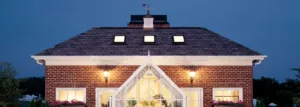Winter is a strange time of year for our homes. It has to work a lot harder to keep its inhabitants comfortable. The heating is on, the windows are open less and there’s more demand on appliances like boilers, radiators and ventilation. Which means there’s more wear and tear.
This leads to a collection of strange goings on, from odd sounds to unusual smells. But don’t get freaked out, there’s normally an innocent explanation for all of them.
Knocking and tapping sounds when you go to bed
Have you ever settled into bed at the end of a long day and been kept awake by a strange sequence of tapping and knocking sounds? If so you are not alone. Far from it in fact. This is one of the most common causes of concern amongst home owners who participated in an October 2019 study.
The research, conducted by property maintenance experts Aspect.co.uk found that almost two thirds of people feel unsettled in their homes, and the unexplained knocking and tapping is one of the most common reasons why.
So what’s happening? It’s most likely to do with water pressure. If the water pressure to high, water forces its way through the system from the tank to the faucet with such force that it can cause the pipes to rattle and come loose from their fixings. The knocking normally happens shortly after demand, so when the faucets are shut off. So, if you’ve just brushed your teeth and got into bed, and you hear an odd knocking or tapping sound, check your water pressure.
Weird smells you never noticed before
All houses have a unique odor signature. It’s the culmination of the food we cook, the fragrances we wear and the fabric softener we use. But sometimes, we notice weird smells that we can’t explain. And if often happens in winter.
Nick Bizley, a property maintenance expert and director of operations at Aspect.co.uk who conducted the study explained the deal with the weird smells.
“Strange smells are a little harder to diagnose, because the potential causes are so varied. A constant ‘musty’ smell could be the result of damp conditions and the growth of mould caused by poor ventilation. This is more likely if it’s a room that gets less use and receives less natural light and fresh air from outside, such as a spare room or the loft. If the smell is more distinct, for example an unpleasant rotting or ammonia smell, it could be a sign of pests, such as mice. Blocked drains can cause a very strong and unpleasant smell too.”
Creaking and moaning sounds first thing in the morning
You’re just about to let out a big yawn and your house beats you to it. Where did that load creaking moan come from? That’s the timber frame of the property reacting to changes in temperature. In summer, while the temperatures may get quite high, it tends to change temperature gradually, starting off cool then warming up before cooling off again.
In winter, the changes in temperature are a lot more pronounced. The temperature outside drops suddenly when the sun goes down and the temperature goes up suddenly when the heating is fired up. This means that the natural contracting and expanding of the timber frame of the house and things like door frames and architraves happens a lot more rapidly, causing it to creak and groan as the wood moves and stretches. This is totally normal, even if it’s a little off-putting.
Unpredictable electrics
In temperature climates such as most of North America and Europe, our home electrical systems have to work a lot harder during winter. Near the equator, electricity demand surges during summer as people strive to stay cool. Away from the equator, it happens in winter as people strive to stay warm and comfortable.
Nick Bizley from Aspect.co.uk explains what can go wrong when demand spikes.
“Kitchens can suffer from electrical problems because that’s where there are lots of appliances that use a lot of electricity, such as kettles, microwaves, electric ovens/hobs/grills and toasters. If they’re all on at once a circuit could get overloaded and trip. The only advice I’ll give here is to call in a qualified electrician. If your light switches or plugs ever behave in any way they shouldn’t, for example sparking sockets or flickering lights, it’s a job for a professional. This doesn’t mean it’s necessarily a big problem, but I’d recommend that only qualified tradespeople should be working on electrics.”








